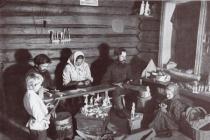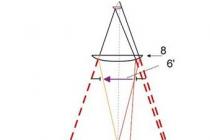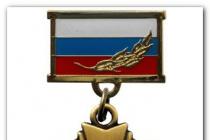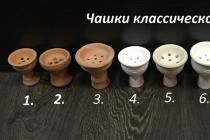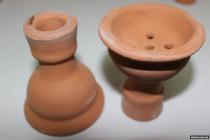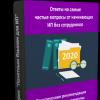In necessary cases, to participate in the commission of specific actions during the customs control may be involved not interested in the results of such actions specialist
Possessing special knowledge and skills necessary to assist customs authorities, including the use of technical means.
Involvement of a person as a specialist is carried out on a contractual basis.
The specialist has the right:
1) get acquainted with the materials related to the subject of actions performed with his participation;
2) with the permission of an official of the customs body, ask questions related to the subject of the relevant actions to the participants in such actions;
3) get acquainted with the documents drawn up as a result of the actions taken during customs control, in which he took part, and make statements or comments on the actions he takes, to be included in such documents.
The specialist must:
1) participate in the commission of actions requiring special knowledge, give explanations about the actions he performs;
2) certify with his signature the fact of the said actions, their content and results.
Information received by a specialist when engaging him in customs control actions, constituting a commercial, banking or other secret protected by law, as well as other confidential information, must not be disclosed to him, used for other purposes, transferred to third parties, except for cases provided for by federal laws.
Expenses incurred by the customs authorities in connection with the involvement of a specialist are reimbursed at the expense of federal budget, except for cases where a specialist is involved not at the initiative of the customs authorities.
Customs has the right to involve, in accordance with the legislation of the Russian Federation, specialists from other law enforcement or regulatory authorities to assist in the conduct of customs control.
Expenses associated with the involvement of specialists from other state bodies, if this work is not included in their scope official duties are reimbursed in the manner determined by the Government of the Russian Federation.
see also
Introduction
Any branch of Russian law regulates certain legal relations, i.e. relationships regulated by law. In particular, civil law characteristic of the regulation of civil law ...
Introduction
In this work, I set myself the goal of considering one of the topics of such a legal discipline as the theory of state and law - the theory of administrative-territorial structure. Considered...
LEGAL REGULATION OF PAYMENTS AND LENDING
The manager is a hired manager, the boss! If you do not have a single subordinate, you are not a manager, but a maximum specialist! Denis Shevchuk...
The document is no longer valid or canceled
"Customs Code of the Customs Union" (as amended on 08.05.2015) (annex to the Treaty on the Customs Code of the Customs Union, adopted by the Decision of the Interstate Council of the EurAsEC at the level of heads of state of 27.11.2009 N 17)TK TS Article 101. Participation of a specialist during customs control
1. In necessary cases, a specialist who is not interested in the results of such actions and has the special knowledge and skills necessary to assist the customs authorities, including in the application of technical means, may be involved in the performance of specific actions during customs control.
2. The engagement of a person as a specialist is carried out on a contractual basis.
3. The specialist has the right:
1) get acquainted with the materials related to the implementation of specific actions performed with his participation;
2) get acquainted with the documents drawn up as a result of the actions taken during customs control, in which he took part, and make statements or comments on the actions he takes, to be included in such documents.
4. The specialist is obliged:
1) participate in the commission of actions requiring special knowledge, give explanations about the actions he performs;
2) certify with his signature the fact of the said actions, their content and results.
5. The information received by a specialist constituting a commercial, banking or other secret protected by law, as well as other confidential information should not be disclosed to them, used for other purposes, transferred to third parties, except as provided for by the legislation of the Member States customs union.
6. Expenses incurred by the customs authorities in connection with the involvement of a specialist shall be reimbursed at the expense of the person in respect of whom or whose goods are subject to customs control, if in the course of customs control violations of the customs legislation of the customs union are revealed. In other cases, such payment for services is carried out at the expense of the budget of the state - a member of the customs union, the customs authority of which carried out customs control.
1. The involvement of specialists and experts in the conduct of customs control is carried out in the cases and in the manner determined by Articles 101, 102 and Chapter 20 of the Customs Code of the Customs Union.
2. Customs expertise during customs control is appointed and carried out in accordance with Chapter 20 of the Customs Code of the Customs Union, subject to the provisions of this Article.
3. The term for conducting a customs examination, provided for by paragraph 2 of Article 139 of the Customs Code of the Customs Union, may be extended with the written permission of the head (deputy head) of the customs authority conducting the customs examination, indicating the reasons for such an extension for the period necessary for the examination, except for cases when in accordance with this federal law the release of goods is not carried out until the results of the examination are received. In this case, the examination must be carried out within a period not exceeding the period for the release of goods, taking into account the extension of the specified period, in accordance with paragraph 4 of Article 196 of the Customs Code of the Customs Union.
4. In the event of a customs examination in another authorized organization the period for conducting a customs examination may be extended with the written permission of the head of the authorized organization in agreement with the customs body that appointed the customs examination, indicating the reasons for such an extension for the period necessary for the examination, except for cases when the release of goods is not carried out until the results of the examination are received. In this case, the examination must be carried out within a period not exceeding the period for the release of goods, taking into account the extension of the specified period, in accordance with paragraph 4 of Article 196 of the Customs Code of the Customs Union.
5. The term for conducting a customs examination is suspended in case of non-compliance of the presented objects with their list specified in the decision on the appointment of a customs examination, but not more than 10 working days. The procedure for suspending the terms of customs examination is determined by the federal body executive power authorized in the field of customs.
6. The conduct of a customs examination may be refused in the cases provided for in paragraph 5 of Article 138 of the Customs Code of the Customs Union, as well as in the absence of a customs expert (expert) of the required qualification in the customs body conducting the customs examination, or in another authorized organization.
7. The procedure for taking samples and samples of goods for customs examination is determined by the federal executive body authorized in the area of customs affairs, on the basis of the provisions provided for in Article 144 of the Customs Code of the Customs Union.
8. Forms of the decision on the appointment of a customs examination, the conclusion of a customs expert (expert) when conducting a customs examination are established by the federal executive body authorized in the field of customs affairs. Each page of the conclusion of the customs expert (expert) during the customs examination, including annexes, is signed by the customs expert (expert) who conducted the customs examination and certified by the seal of the customs authority conducting the customs examination or another authorized organization conducting the customs examination.
9. In cases where payment for the services of specialists and experts in accordance with the Customs Code of the Customs Union is carried out at the expense of the federal budget, the procedure for reimbursement of such expenses is determined by the Government of the Russian Federation.
In necessary cases, a specialist who is not interested in the results of such actions and has the special knowledge and skills necessary to assist the customs authorities, including in the application of technical means, may be involved in the performance of specific actions during customs control.
Involvement of a person as a specialist is carried out on a contractual basis.
The specialist has the right:
1) get acquainted with the materials related to the implementation of specific actions performed with his participation;
2) get acquainted with the documents drawn up as a result of the actions taken during customs control, in which he took part, and make statements or comments on the actions he takes, to be included in such documents.
The specialist must:
1) participate in the commission of actions requiring special knowledge, give explanations about the actions he performs;
2) certify with his signature the fact of the said actions, their content and results.
Information received by a specialist constituting a commercial, banking or other secret protected by law, as well as other confidential information, must not be disclosed to them, used for other purposes, transferred to third parties, except as otherwise provided by law.
Expenses incurred by the customs authorities in connection with the involvement of a specialist shall be reimbursed at the expense of the person in respect of whom or whose goods are subject to customs control, if in the course of customs control violations of the customs legislation of the customs union are revealed. In other cases, such payment for services is carried out at the expense of the budget.
The customs authorities have the right to involve specialists and experts from other state authorities to assist in the conduct of customs control.
Specialists and experts involved from other state bodies are obliged not to disclose information constituting state, commercial and other legally protected secrets (secrets), as well as confidential information relating to participants in foreign economic and other activities in the field of customs.
Expenses associated with the involvement of specialists and experts from other state bodies, if this work is not part of their official duties, are reimbursed at the expense of the person in respect of whom or whose goods are subject to customs control, if violations of customs legislation are revealed during customs control customs union. In other cases, such payment for services is carried out at the expense of the budget.
46 . Access officials customs authority to the objectof the inspected person for conducting an on-site customs inspection.Rights and obligations of officials of the customs authorityduring a customs checkAndperson being checked. Submission of documents and information for the purposes ofcustoms check.
Upon presentation by officials of the customs authority of a decision (instruction) to conduct a customs inspection (an act on the appointment of an inspection) and service certificates, the inspected person is obliged to ensure that these officials have access to the object of the inspected person (except for residential premises) to conduct an on-site customs inspection.
The verified person has the right to refuse access to the facility if:
1) the decision or service certificates are not presented;
2) officials of the customs bodies are not indicated in the decision;
3) officials do not have special permission to access the facility, if such permission is required in accordance with the law.
If the inspected person refuses to allow officials of the customs authority to access the object of the inspected person, a protocol is drawn up.
In the event of an unjustified refusal of the inspected person, officials of the customs authorities have the right to enter the object with the suppression of resistance and with the opening of the locked premises in the presence of 2 witnesses, except for cases established by law. About all cases of entering the objects with the suppression of resistance and with the opening of locked premises, the customs authorities notify the prosecutor within 24 hours.
Officials of the customs body have the right:
demand and receive commercial, transport documents, accounting and reporting documents and other information, including on electronic media relating to the checked goods;
conduct an inventory of goods during field customs inspections;
carry out, during field customs checks, sampling and samples of goods with drawing up an act on sampling and samples of goods;
seize documents or their copies with the drawing up of an act of seizure during field customs checks;
seal the premises where goods are located, etc.
Officials of the customs bodies are obliged to:
1) observe the rights and legitimate interests of the person being checked, prevent harm to the person being checked by unlawful decisions and actions (inaction);
2) not to violate the established mode of work of the inspected person during the period of the on-site customs inspection;
3) use exclusively for customs purposes any information received during customs checks;
4) not to disclose confidential information and information constituting tax, banking and other secrets protected by law, which became known during customs checks, etc.
The person being checked during the customs check has the right to:
request from the customs authorities and receive from them information about legal provisions relating to the procedure for conducting customs checks;
submit all documents and information at its disposal confirming the fact of release of goods;
appeal against decisions and actions (inaction) of customs authorities, etc.
When conducting a customs inspection, the person being inspected must:
1) present the goods in respect of which a customs check is being carried out;
3) ensure unhindered access of officials to the facilities of the person being checked and provide them with a workplace;
4) make a note on the original receipt of the decision (instruction) to conduct a customs inspection (an act on the appointment of an inspection), etc.
Tax and other state authorities submit, at the request of the customs authorities, the necessary documents and information regarding registration legal entities, payment and calculation of taxes, financial statements, as well as documents and information, including those constituting commercial, banking and tax secrets, in compliance with the requirements of the legislation on the protection of state, commercial, banking, tax and other secrets protected by law.
Banks and others credit organizations submit, at the request of the customs authority, documents and information relating to the movement of funds on the accounts of organizations necessary for the customs inspection, including those containing bank secrecy.
Legal basis application of the TSTC.
Legal basis for the application of the TSTK- a list of regulated by the Customs Code of the Russian Federation and by-laws regulations norms that determine the need, possibility, admissibility and restrictions on the use of the TSTC in the process of customs control.
Article 107 (Customs Code of the Customs Union) Use of technical means and vessels during customs control
1. In order to reduce the time of customs control and increase its efficiency, customs authorities may use technical means customs control, the list and procedure for the application of which are established by the legislation of the states - members of the customs union.
These technical means must be safe for the life and health of humans, animals and plants and must not cause harm to persons, goods and vehicles.
2. Customs control in respect of goods moving through customs border, can be carried out using sea (river) and aircraft of customs authorities.
3. The procedure for the use of sea (river) and aircraft of the customs authorities for the purposes of customs control is established by the legislation of the member states of the customs union.
1. In necessary cases, a specialist who is not interested in the results of such actions and has the special knowledge and skills necessary to assist the customs authorities, including in the application of technical means, may be involved in the performance of specific actions during customs control.
2. The engagement of a person as a specialist is carried out on a contractual basis.
3. The specialist has the right:
1) get acquainted with the materials related to the implementation of specific actions performed with his participation;
2) get acquainted with the documents drawn up as a result of the actions taken during customs control, in which he took part, and make statements or comments on the actions he takes, to be included in such documents.
4. The specialist is obliged:
1) participate in the commission of actions requiring special knowledge, give explanations about the actions he performs;
2) certify with his signature the fact of the said actions, their content and results.
5. Information received by a specialist constituting a commercial, banking or other secret protected by law, as well as other confidential information should not be disclosed to them, used for other purposes, transferred to third parties, except as provided by the legislation of the member states of the customs union.
6. Expenses incurred by the customs authorities in connection with the involvement of a specialist shall be reimbursed at the expense of the person in respect of whom or whose goods are subject to customs control, if in the course of customs control violations of the customs legislation of the customs union are revealed. In other cases, such payment for services is carried out at the expense of the budget of the state - a member of the customs union, the customs authority of which carried out customs control.
Article 102
1. Customs bodies have the right to involve specialists and experts from other state bodies to assist in the conduct of customs control.
2. Specialists and experts involved from other state bodies are obliged not to disclose information constituting state, commercial and other legally protected secrets (secrets), as well as confidential information relating to participants in foreign economic and other activities in the field of customs.
3. Expenses associated with the involvement of specialists and experts from other state bodies, if this work is not part of their official duties, are reimbursed in the manner determined by paragraph 6 of Article 101 of the CU Code.
Article 103. Interaction between customs authorities and controlling government bodies at the customs border
1. When carrying out customs control of goods transported across the customs border and subject to control by other controlling state bodies, the customs authorities ensure the overall coordination of such actions and their simultaneous implementation in the manner determined by the legislation of the member states of the customs union.
2. In order to improve the efficiency of customs control of goods moved across the customs border, customs authorities and controlling state authorities exchange information (information) and (or) documents necessary for customs and other types of state control, using information systems and technologies.
3. In order to speed up the procedures of state control when moving goods across the customs border, customs inspection may be carried out with the participation of all state bodies exercising control at the customs border. At the same time, an act of customs inspection is drawn up.
Article 104
1. When conducting customs control, it is not allowed to cause unlawful harm to the customs carrier, declarant, their representatives, owners of temporary storage warehouses, customs warehouses, duty-free shops and other interested parties whose interests are affected by actions (inaction) and decisions of the customs authorities during customs control, as well as goods and vehicles.
2. Losses caused to persons by unlawful decisions, actions (inaction) of the customs authorities or their officials in the course of customs control shall be compensated in full, in accordance with the legislation of the member states of the customs union.
3. Losses caused to persons by lawful decisions, actions of officials of the customs authorities, are not subject to compensation, except as provided by the legislation of the states - members of the customs union.
Article 105. Exemption from the use by customs authorities of certain forms of customs control
1. Exemption from the use by the customs authorities of certain forms of customs control is established by the CU Code, international treaties of the member states of the customs union and other international treaties.
2. Personal baggage is not subject to customs inspection:
1) heads of states - members of the customs union and members of their families following with them;
2) heads of governments, members of the governments of the member states of the customs union, if these persons cross the customs border in connection with the performance of official duties;
3) heads of foreign states, heads of governments of foreign states, ministers of foreign affairs visiting states - members of the customs union on an official visit;
4) other persons in accordance with international treaties of the member states of the customs union and other international treaties.
3. Exempted from customs inspection:
1) foreign warships (vessels), combat aircraft And military equipment, following their own course;
2) military property, which, according to special statements of the relevant state bodies of the member states of the customs union, is moved across the customs border;
3) foreign aircraft performing international flights during the period of parking in the customs control zones at international airports of the states - members of the customs union.
Article 94. Principles of conducting customs control
1. When conducting customs control, the customs authorities proceed from the principle of selectivity and are limited only to those forms of customs control that are sufficient to ensure compliance with the customs legislation of the customs union and the legislation of the member states of the customs union, the control over the implementation of which is entrusted to the customs authorities.
2. When choosing objects and forms of customs control, a risk management system is used.
3. In order to improve customs control, the customs authorities cooperate with the customs authorities of foreign states in accordance with international treaties.
4. In order to improve the efficiency of customs control, customs authorities interact with other controlling state bodies, as well as with participants foreign economic activity, authorized economic operators, customs representatives, customs carriers and other persons whose activities are related to the implementation foreign trade and with their professional associations(associations).
5. Customs authorities, within their competence, exercise other types of control, including export, currency and radiation, in accordance with the legislation of the member states of the customs union.
6. When conducting customs control, no permits, prescriptions or resolutions for its implementation are required, except for the cases provided for by the CU Code.

